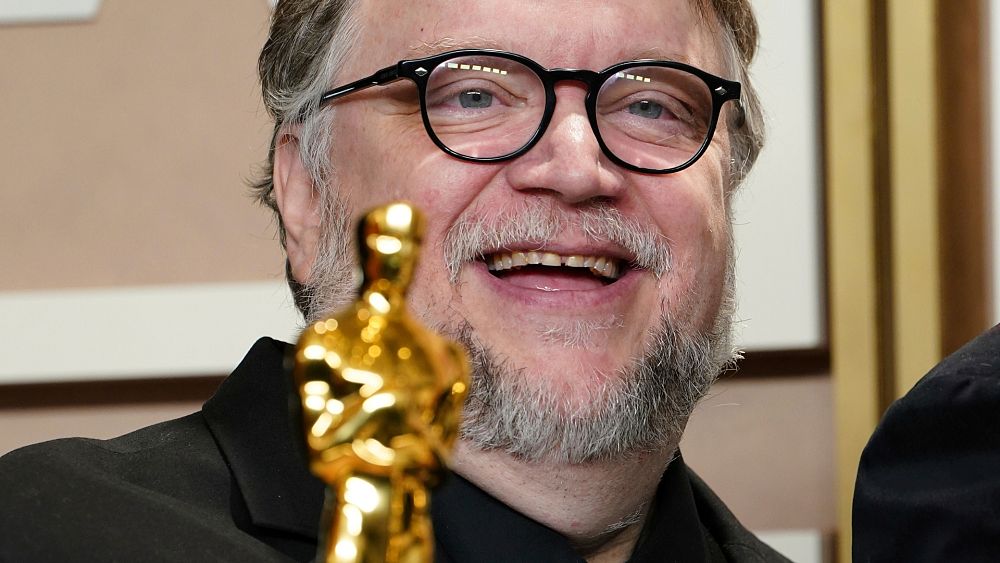Celebrating Guillermo del Toro: A Master of Cinema
On this day in Guadalajara in 1964, one of Mexico’s most illustrious directors of the 21st century was born: Guillermo del Toro. Alongside fellow compatriots Alfonso Cuarón (Y tu mamá también, Children of Men, Roma) and Alejandro González Iñárritu (Babel, Birdman, The Revenant), del Toro has crafted remarkable large-scale films that have not only captivated audiences but have also left an indelible mark on Hollywood.
Starting from humble beginnings, where he would shoot short films using his father’s Super 8 camera, del Toro has evolved into a defining figure in the early 2000s comic book cinema landscape. His filmography spans a diverse range of topics, from the haunting echoes of the Spanish Civil War to his deep fascination with outsiders and the horror genre. At one point, he was even slated to direct the live-action adaptations of The Hobbit films, and his talent has been recognized with an impressive eight Academy Awards.
On his birthday, let’s take a moment to explore what I consider to be Guillermo del Toro’s five most outstanding films.
5. Hellboy II: The Golden Army (2008)
This is a personal list, so feel free to disagree with my choices. While del Toro’s first film in his ambitious but cut-short trilogy of Hellboy adaptations was gritty, witty, and unique for its time, the landscape has since been flooded with imitations that diminish its shine. However, the sequel is a different story. Del Toro fully embraces his signature style, creating a bizarre yet enchanting world filled with animatronics, puppetry, and practical effects. The result is a vibrant supernatural universe that stands out amidst the sea of superhero CGI that often dominates today’s cinema. Plus, Ron Perlman shines in his role, as always.
4. The Shape of Water (2017)
Reluctantly, I’ve included The Shape of Water in this list. Honestly, I find the film to be somewhat saccharine and lacking depth. Nevertheless, it’s impossible to overlook the numerous accolades that came its way, solidifying del Toro’s reputation as a master storyteller. The tale of a humanoid amphibian (portrayed by del Toro favorite Doug Jones) who falls in love with a mute custodian (Sally Hawkins) set against a backdrop of Cold War tensions and musical interludes certainly offers a unique premise that caught the Oscar voters’ attention. Many were deeply moved by its themes, and perhaps it deserves a second viewing from me.
3. The Devil’s Backbone (2001)
Now we delve into the heart of the list. The Devil’s Backbone marks del Toro’s poignant exploration of the Spanish Civil War. Set in 1939, at the war’s conclusion, the film follows a young boy left alone in an orphanage, haunted by the spirit of a boy who perished during the conflict. Del Toro’s greatest strength lies in his ability to translate the literary tradition of magical realism, as seen in the works of Colombian author Gabriel García Márquez, onto the screen. This film blends surrealism, horror, and the rawness of trauma, exemplifying del Toro’s genius in using imaginative storytelling to bring clarity to our own realities.
2. Pinocchio (2022)
In a year when Disney resorted to rehashing its own classic Pinocchio for a quick profit, del Toro distinguished himself by crafting a heartfelt reimagining of the beloved tale. Set against the backdrop of Fascist Italy, del Toro delves into Geppetto’s motivation for creating the puppet, rooted in the profound grief of losing a child to war. His unique contributions to the narrative present a stunningly artistic depiction of the afterlife. The result is a personal journey that transcends the traditional children’s story, addressing themes of life, death, and the impact of conflict.
1. Pan’s Labyrinth (2006)
It had to be this one. In his second exploration of the Spanish Civil War, del Toro sets Pan’s Labyrinth in the aftermath of Franco’s dictatorship. The magic of del Toro shines through as young Ofelia discovers a mystical faun who guides her into a labyrinth, promising that she is the reincarnation of a lost princess. This dark fairy tale encapsulates the height of del Toro’s artistic abilities, weaving together elements of magic, trauma, and stunning visuals. The film stands as a testament to the bleak realities of war, juxtaposed with the unsettling beauty of her enchanting alternate realm.
